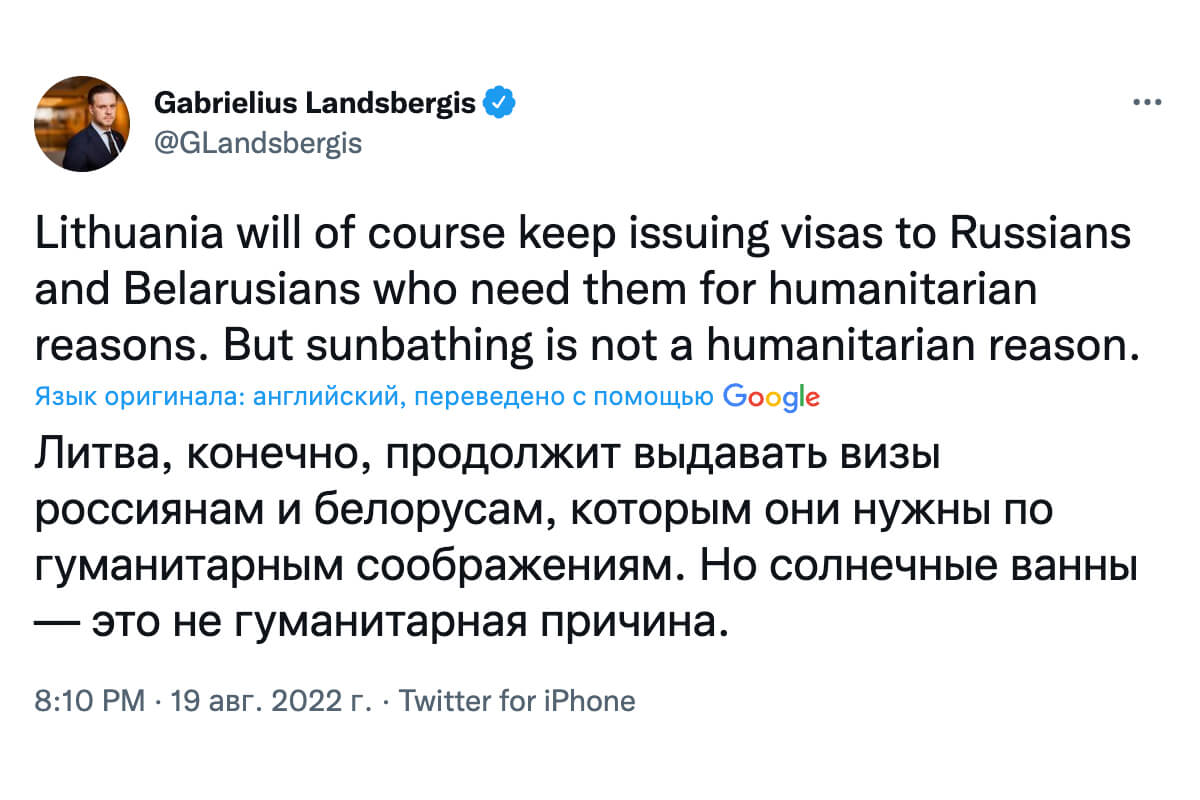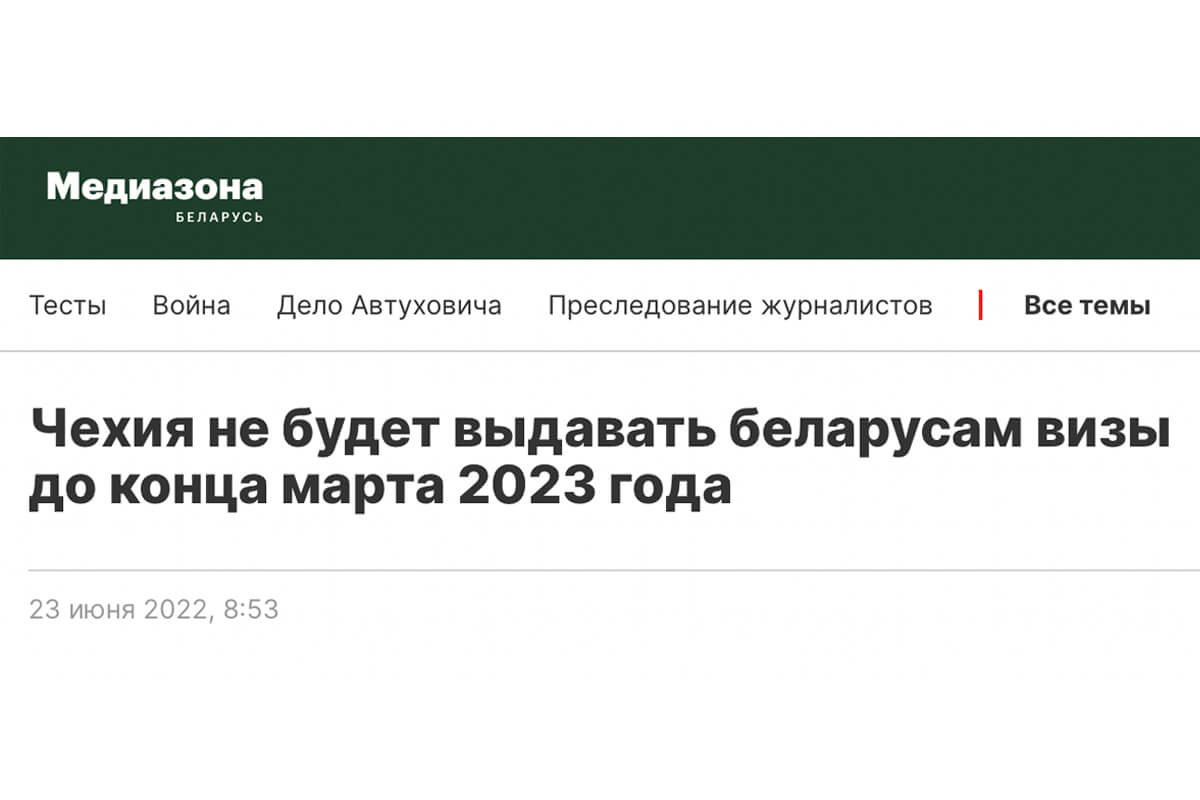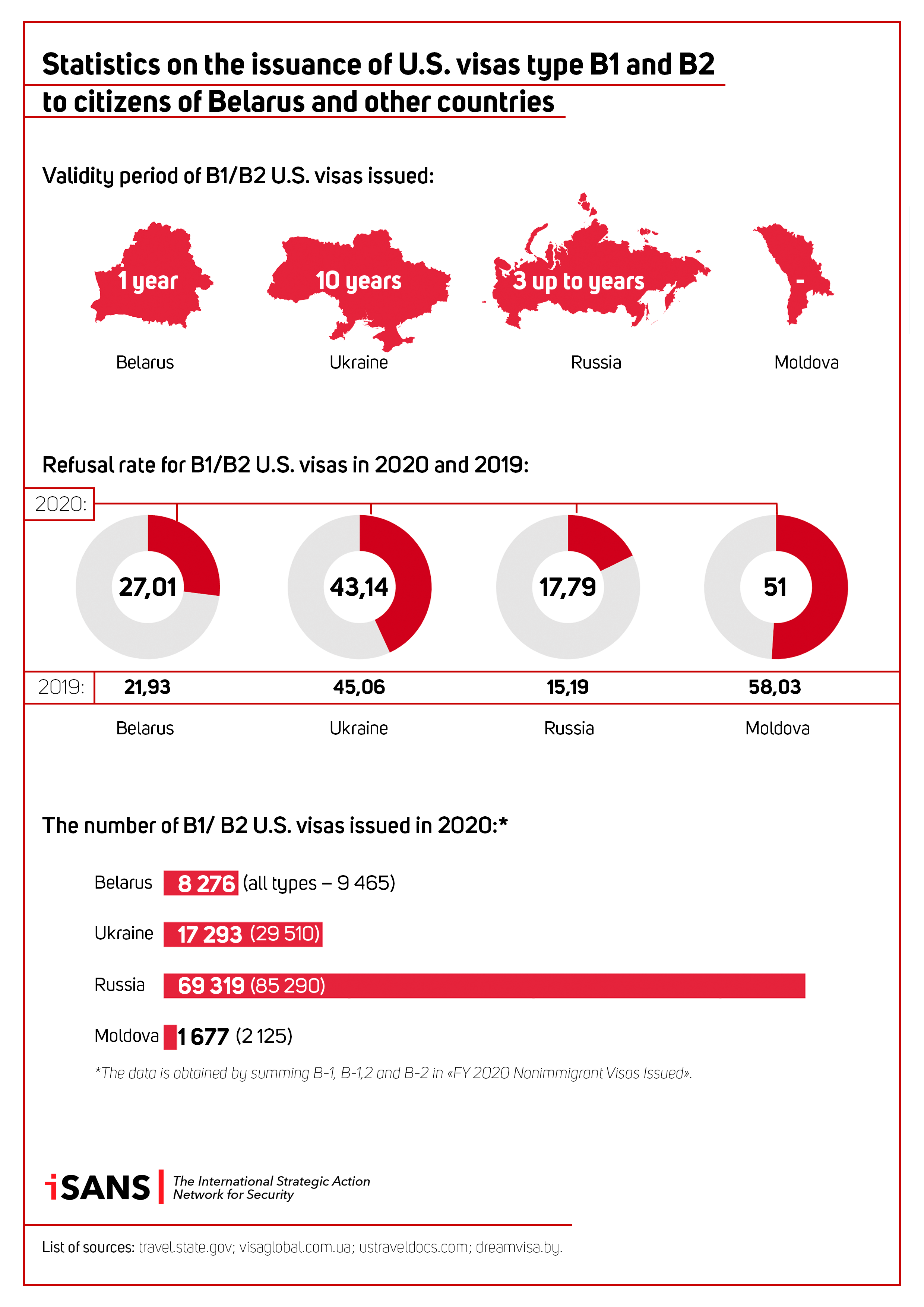На русском языке:
Беларусь – это Европа или часть России? Беларусы свой выбор сделали в 2020 году. Слово за европейскими политиками
I will try to explain one more time why visa ban and restrictions against Belarusians is a very simple, but failed tendency for the entire region. A column by Anton Motolko, the founder of the projects Belarusian Hajun, MotolkoHelp, dze.chat and coordinator for Belarus at the analytical center iSANS.
Background
Back in 2019, when iSANS and I went to Washington and Brussels and warned about danger of Putin’s desires to «re-build the Empire,» one of the points was under a strange title of «the value of the Belarusian passport.» What was put into these words? Briefly: Belarusians should have realized that it is much better to have a Belarusian passport than a Russian one (moreover, not of the DNR/LNR). That owners of Belarusian passports are treated well and adequately in most countries of the world, there are no additional restrictions on doing business, getting education or traveling. The last one is the easiest. It means maximum visa privileges, or, even better, visa-free regime with the key countries. In particular, the U.S., Canada, the U.K., and the European Union.
Of course, visa-free regime is a complicated procedure requiring reciprocity in diplomacy (at the same time, de facto, we already had a visa-free regime in Belarus for those who came to Minsk by plane).
When we went with iSANS to Washington in March and May and to Brussels in June 2022, the context was very different. We did not say «we told you so,» but all of our recommendations included an «anti-discrimination» block. It included a key message:
«Belarusians are not equal to Russians, Belarusians is a European nation that does not support the war and lives in «internal occupation» for the second year. Belarusians elected a new president in 2020, who condemned Russia’s aggression and supports Ukraine and Ukrainians in their fight against the invaders.»
And there were 3 key recommendations from our team:
- Facilitation in obtaining regular visas to keep those in Belarus in touch with those who have left since 2020.
- Getting education in European and American universities, continuing scientific activities for scientists and researchers.
- No discrimination against businesses, the owners of which are people with Belarusian citizenship. Facilitate running a business for those who relocated from Belarus after 2020, do not block bank accounts, etc.
To sum up, to withdraw the Belarusian passport out of the black and gray zones, and to work with it as with a regular European passport.
Visa problem
There are 2 main types of visas that people get in Belarus since 2020:
1. Type «C» visa, which is considered «tourist». Does not include work in other countries or permanent residence. It can be issued for a single entry for a period of 5-15 days and for 5 years, with a maximum stay of 90 days within a six-month period. This type of visa is perfect for short-term trips, meeting with friends/relatives/colleagues and tourism.
2. Type «D» visa. They can be educational, working (the most frequent), but since 2020 there is a new wording: «humanitarian visa.» They began to be issued to those Belarusians who were threatened with arrest or other kind of repression in Belarus. And it was supposed that people who apply for humanitarian visas can’t return to Belarus after they leave the country (because of the risk of repression), and then they are legalized on the territory of the European Union (get a residence permit).
Unfortunately, there were many dishonest people who applied for humanitarian visas just to be able to travel (remember covid and that almost no tourist visas were issued in 2020-2021).
Why did this happen? No opportunity to get a regular tourist visa. Was it a good thing that this was done? In my opinion, no, it violated the concept of humanitarian visas and those who really needed them (and most often, they needed them within a day or three to be able to leave before being arrested) had to wait longer and be in more danger.
In addition, we should not forget diplomatic wars and the fact that Makei’s Foreign Ministry reduced the number of employees in European embassies and consulates of neighboring countries. For example, one Lithuanian embassy now has only one consul, while there used to be more than 15.
What could have been done to rectify the situation?
Impose a visa-free regime for those who have a Belarusian passport and who are not under the sanctions of the EU, the U.S. and the UK.
Obviously, this is utopia in the current realities. So let’s move on to the second point: make it easier to get visas and make the issuance of Schengen visas for 3-5 years a rule, not an exception. The same applies to the U.S. visas (now Belarusians get visas for maximum 1 year, while Russians get them for 3 years).
Statistics on issuance of U.S. visas to citizens of Belarus, Russia, Ukraine, and Moldova in 2019-2020 / iSANS
How will it work? After six months or a year, the workload on consuls and visa centers will decrease, because there will be no need to reopen visas for those who received them six months or a year ago. Those who are in danger in Belarus and who will be legalized in the EU countries later will apply for humanitarian visas. Belarusians who want to stay in Belarus and continue doing something to change the situation will know that they can always meet with those who were forced to leave the country and can’t return. And there won’t be that gap between «those who stayed» and «those who left,» which the Lukashenka regime dreams of, constantly turning people against each other (hello, Radio of Thousand Hills).
And one of the key points is that people in Belarus will not see Europe as «opponents of the European vector of development,» and Russia will not be the only prospect for hundreds of thousands of people who will lose the possibility of traveling in Europe/Western countries.
We will see what Europe will choose and what the public position of politicians and ministers of the countries nearest to Belarus will be. We would like to hear about «we support facilitation of issuance of long-term Schengen visas for Belarusians, Belarusians are not Russians, and we will not leave you alone with the Kremlin.»
Sincerely, Anton Motolko. Activist, founder of the projects Belarusian Hajun, MotolkoHelp, dze.chat, iSANS (analytical center, coordinator for Belarus).







